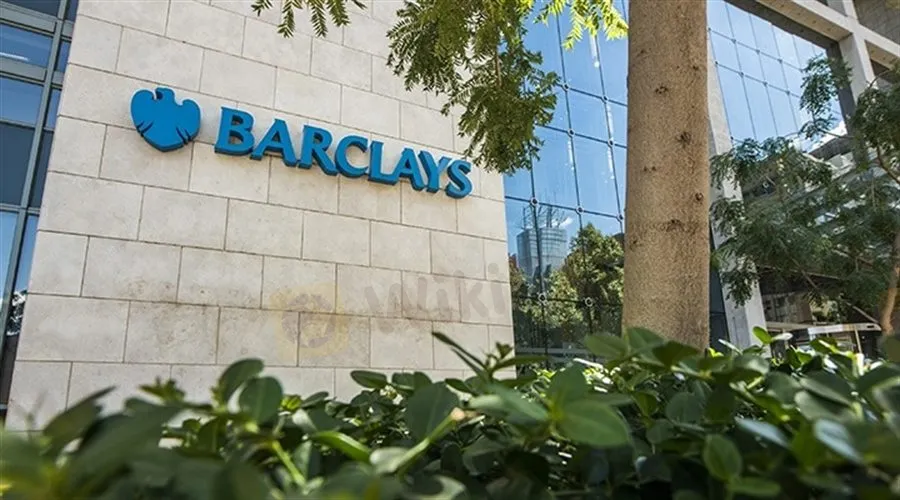简体中文
繁體中文
English
Pусский
日本語
ภาษาไทย
Tiếng Việt
Bahasa Indonesia
Español
हिन्दी
Filippiiniläinen
Français
Deutsch
Português
Türkçe
한국어
العربية
Barclays Pays $2.8M Fine for Customer Confirmation Non-Compliance
Abstract:There were 11 underlying issues resulting in failure. The bank was aware of the inaccuracies from mid-2017.

Barclays accepted a censure order imposed by the US Financial Industry Regulatory Authority (FINRA) for non-compliance with customer confirmation and related supervision rules as well as having agreed to pay a penalty of $2.8 million.
Take Advantage of the Biggest Financial Event in London. This year we have expanded to new verticals in Online Trading, Fintech, Digital Assets, Blockchain, and Payments.
According to the regulatory body‘s order, the multinational bank violated the mandatory rules from November 2008. It sent customers around 270 million confirmations with inaccurate disclosure of execution capacity, the customer’s price, the market center of execution and the trade execution price.
The failure was the result of 11 underlying issues that include technological glitches, drafting errors and a misunderstanding of regulatory guidance. All of these issues have remained undetected for at least five years.
Additionally, the banking giant had no supervisory system to review the accuracy of its confirmations from at least November 2008 till March 2020. Additionally, there is an unreasonable supervisory system in place from April 2020 until now.
Moreover, the order stated that Barclays was aware of the multiple systemic issues resulting in inaccurate confirmation from mid-2017, but the issues still persisted.
A Repeat Offender
Despite Barclays reputation, it has faced multiple regulatory fines over the years. Earlier this year, FINRA slapped the bank with a $350,000 penalty for lapses in market access controls, while the FCA imposed another £783,800 fine for failings in oversight in its relationship with Premier FX.
Also, Barclays paid hundreds of thousands of dollars to FINRA and other US market overseers for other multiple lapses.
However, Barclays is not the only capital market player to face such monetary penalties. Furthermore, FINRA slapped a $9 million penalty on National Securities Corp last week for multiple cases of misconduct.
UBS, another major name in the wealth management and banking industry, recently settled fraud charges brought against it by the SEC paying $25 million for marketing and selling of a complex investment strategy.

Disclaimer:
The views in this article only represent the author's personal views, and do not constitute investment advice on this platform. This platform does not guarantee the accuracy, completeness and timeliness of the information in the article, and will not be liable for any loss caused by the use of or reliance on the information in the article.
Read more

IG 2025 Most Comprehensive Review
This article evaluates the broker from multiple dimensions, including a basic introduction, fees, safety, account opening, and trading platforms.

EXNESS 2025 Most Comprehensive Review
This article evaluates the broker from multiple dimensions, including a basic introduction, fees, safety, account opening, and trading platforms.

Top Profitable Forex Trading Strategies for New Traders
Know profitable Forex strategies for beginners, including risk management tips, best currency pairs, technical analysis tools, and timeframe selection.

WikiFX Review: Is IVY Markets Reliable?
IVY Markets, established in 2018, positions itself as a global brokerage offering a diverse range of trading instruments, including Forex, Commodities, Cryptocurrencies, and Stocks. The platform provides two primary account types—Standard and PRO—with a minimum deposit requirement of $50 and leverage up to 1:400.
WikiFX Broker
Latest News
Germany's Election: Immigration, Economy & Political Tensions Take Centre Stage
WikiFX Review: Is IVY Markets Reliable?
Why Do You Keep Blowing Accounts or Making Losses?
eToro Adds ADX Stocks to Platform for Global Investors
B2BROKER Launches PrimeXM XCore Support for Brokers
IG 2025 Most Comprehensive Review
Checkout FCA Warning List of 21 FEB 2025
Google Bitcoin Integration: A Game-Changer or Risky Move?
Why Should Women Join FX Market?
ED Exposed US Warned Crypto Scam ”Bit Connect”
Currency Calculator






